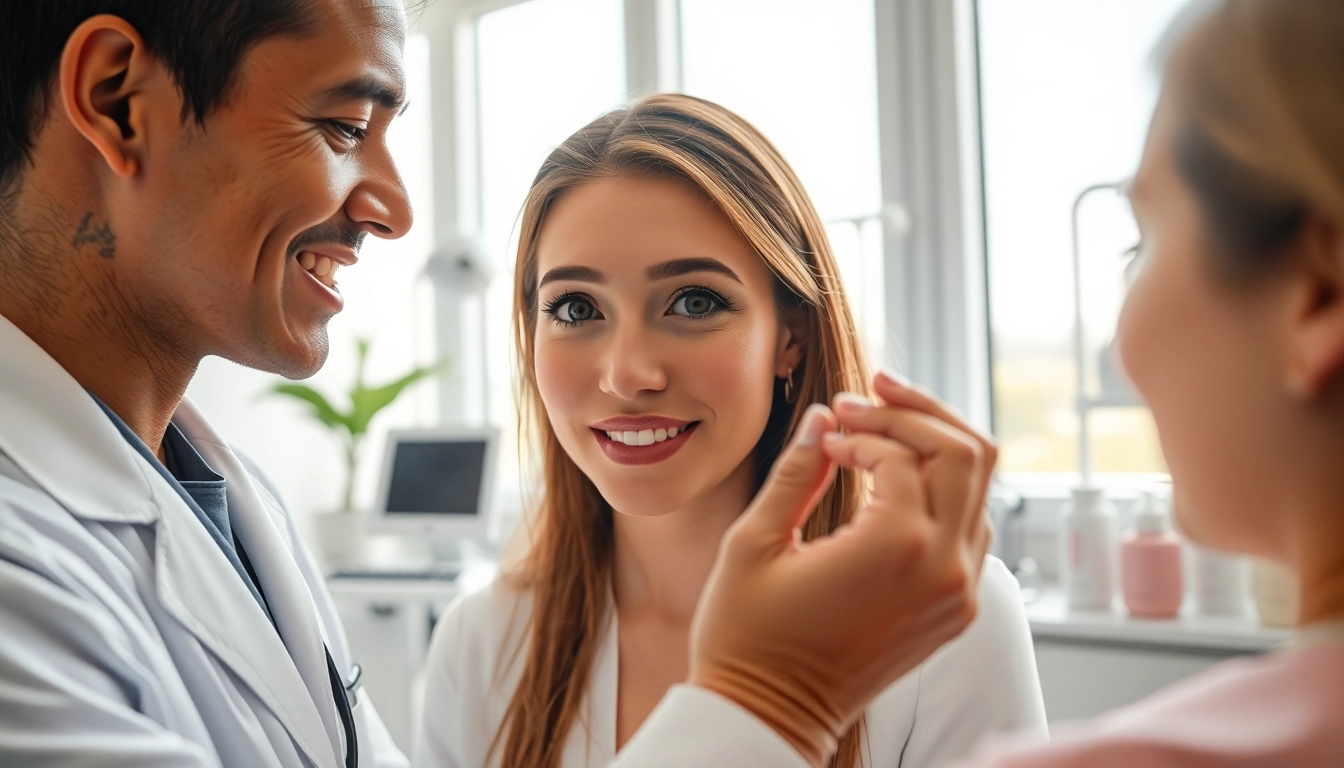
Aesthetic Skin Concerns: Understanding the Basics
Aesthetic skin concerns encompass a wide range of issues that affect the appearance and health of the skin. From acne and hyperpigmentation to wrinkles and rosacea, understanding the various types of skin concerns is crucial in determining effective treatments and interventions. Addressing these aesthetic skin concerns involves not only recognizing their presence but also understanding the underlying factors that contribute to these conditions. In this article, we will explore the common types of aesthetic skin concerns, delve into the key factors contributing to these issues, and examine the science behind skin health and appearance.
Common Types of Aesthetic Skin Concerns
Several aesthetic skin concerns are prevalent across different demographics. Some common types include:
- Acne: Often characterized by pimples, blackheads, and cysts, acne can result from excess oil production, bacterial growth, and clogged pores.
- Hyperpigmentation: This refers to patches of skin that become darker than the surrounding areas, often caused by sun exposure, hormonal changes, or inflammation.
- Wrinkles and Fine Lines: These signs of aging occur due to factors like sun damage, reduced collagen production, and lifestyle choices.
- Dryness and Dehydration: Lack of moisture can lead to flaky, rough-looking skin, making it appear aged and dull.
- Rosacea: This chronic skin condition causes redness, visible blood vessels, and sometimes pustules on the face.
- Dark Circles: Often seen around the eyes, dark circles can be attributed to lack of sleep, genetics, and aging.
Key Factors Contributing to Skin Issues
Several key factors contribute to the onset and severity of aesthetic skin concerns. Understanding these factors can help in both prevention and treatment:
- Genetics: Hereditary factors play a significant role in skin condition, influencing susceptibility to conditions like acne and rosacea.
- Environmental Factors: Sun exposure, pollution, and climate can adversely affect skin health, leading to conditions like sunburns and premature aging.
- Lifestyle Choices: Diet, hydration, exercise, and smoking habits can all impact skin conditions; for instance, a poor diet may exacerbate acne or dryness.
- Hormonal Changes: Fluctuations in hormone levels, such as during puberty, pregnancy, or menstruation, can trigger various skin concerns including acne and pigmentation changes.
Science Behind Skin Health and Appearance
The skin is the largest organ of the body, and its health is a reflection of both internal and external factors. Several key components contribute to skin health:
- Collagen and Elastin: These proteins provide structural support and elasticity to the skin, and their production declines with age, leading to wrinkles and sagging.
- Hydration: Water is essential for maintaining skin’s moisture levels, ensuring it remains plump and resilient against environmental stressors.
- Skin Barrier Function: A healthy skin barrier protects against pathogens, allergens, and irritants; disruptions can lead to conditions like eczema and acne.
- Microbiome: Recent studies suggest that the skin’s microbiome—its natural flora of bacteria—can influence its health and susceptibility to conditions like acne and dermatitis.
Identifying Your Aesthetic Skin Concerns
Identifying your specific aesthetic skin concerns is the first step towards effective treatment. This involves not only self-assessment but also knowing when to seek professional help.
Self-Assessment Techniques for Skin Health
To better understand your skin issues, consider the following self-assessment techniques:
- Skin Type Identification: Understanding whether your skin is oily, dry, combination, or sensitive is crucial. Conduct a simple test to observe how your skin reacts throughout the day.
- Observation of Changes: Keep a diary of any changes in your skin’s condition or appearance, including breakouts, irritation, or dryness, to identify patterns or triggers.
- Patch Testing Products: When introducing new skincare products, conduct a patch test on a small area of skin to check for adverse reactions before applying widely.
When to Consult a Dermatologist
Recognizing when to seek professional advice is essential. You should consult a dermatologist if:
- You experience severe or persistent acne that does not respond to over-the-counter treatments.
- Skin issues cause discomfort, such as itching or burning.
- You notice significant changes in moles or skin lesions.
- There is a familial history of skin conditions affecting your skin health.
Importance of Skin Type in Treatment
Your skin type plays a critical role in determining the most effective treatment options. Skin can be categorized into various types, including:
- Oily Skin: Typically characterized by enlarged pores and excess shine. Treatments should focus on oil control and non-comedogenic products.
- Dry Skin: May appear dull and flaky. The focus here should be on hydration and barrier repair.
- Sensitive Skin: Prone to redness and irritation. Gentle formulations and patch testing products are crucial.
- Combination Skin: This involves a mix of oily and dry areas; tailor your skincare routine to address both needs.
Effective Treatments for Aesthetic Skin Concerns
Ongoing research and development in skincare have led to a wealth of effective treatments for aesthetic skin concerns. These range from topical products to professional procedures.
Top Skincare Products for Various Issues
Here are some effective skincare products categorized by skin concern:
- For Acne: Look for products containing salicylic acid, benzoyl peroxide, or retinoids that help unclog pores and reduce inflammation.
- For Hyperpigmentation: Seek brightening agents like vitamin C, niacinamide, and azelaic acid that can slowly fade discoloration and even skin tone.
- For Dryness: Use moisturizers with hyaluronic acid, glycerin, or ceramides that attract and retain moisture in the skin.
- For Wrinkles: Incorporate products with retinol, peptides, and sunscreen into your routine to combat signs of aging effectively.
- For Sensitive Skin: Opt for fragrance-free, soothing formulations containing ingredients like aloe vera and chamomile.
Professional Treatments and Procedures
For more advanced concerns, consider professional treatments that may offer quicker and more pronounced results:
- Chemical Peels: These treatments use acids to exfoliate the skin, improving texture and tone while treating acne and pigmentation.
- Microneedling: This procedure involves tiny needles to stimulate collagen production and is effective for scarring and wrinkles.
- Laser Treatments: Various laser options can target pigmentation, redness, and fine lines, depending on the skin issue being addressed.
- Fillers and Botox: For advanced anti-aging solutions, cosmetic injectables can provide immediate changes to wrinkles and volume loss.
Natural Remedies and Their Efficacy
While many seek chemical or professional treatments, natural remedies have become increasingly popular. Some effective ones include:
- Aloe Vera: Known for its soothing properties, aloe can help with wounds and sunburns.
- Tea Tree Oil: With antibacterial properties, it can be effective against acne without harsh chemicals.
- Honey: A natural humectant, honey helps hydrate and can provide antibacterial benefits as well.
- Green Tea Extract: Known for its antioxidant properties, it can help reduce the appearance of aging.
Preventive Measures and Best Practices
Beyond treatment, prevention is key in maintaining healthy skin and warding off potential concerns. Establishing a solid skincare routine and lifestyle habits can make a significant difference.
Daily Skincare Routines for Healthy Skin
A consistent skincare regimen tailored to your needs can protect and improve skin health. Here are steps for an effective daily routine:
- Cleansing: Use a gentle cleanser to wash away dirt and pollutants.
- Toning: Apply a toner to balance pH and prepare the skin for other treatments.
- Serums: Incorporate treatments targeted towards your specific concerns, such as antioxidants for protection or retinol for aging.
- Moisturizing: Always follow up with a moisturizer to lock in hydration.
- Sunscreen: Apply broad-spectrum SPF daily, even on cloudy days, to protect from UV damage.
Role of Diet and Hydration in Skin Health
Your diet significantly impacts skin health. A balanced diet rich in antioxidants, vitamins, and minerals supports skin resilience. Some tips include:
- Eat a Variety of Fruits and Vegetables: Foods high in vitamin C, E, and beta-carotene can protect skin from oxidative stress.
- Stay Hydrated: Drinking sufficient water aids skin elasticity and reduces dryness.
- Limit Sugar and Processed Foods: High sugar intake can lead to inflammation, worsening conditions like acne.
Managing Stress and Its Impact on Skin
Stress is often an overlooked factor contributing to skin problems. It can trigger or exacerbate conditions like acne and rosacea. Here are strategies for managing stress:
- Meditation and Mindfulness: Regular practice can enhance overall well-being and improve coping mechanisms.
- Exercise: Physical activity releases endorphins which can lower stress levels and improve mood.
- Balanced Sleep: Aim for 7-9 hours of quality sleep per night to promote skin regeneration and overall health.
Future Trends in Treating Aesthetic Skin Concerns
The field of skincare is ever-evolving, with innovations continuously emerging that promise to improve the way we approach aesthetic skin concerns.
Innovations in Skincare Technologies
The future of skincare will likely see a greater integration of technology:
- Personalized Skincare: Brands are beginning to offer tailored products based on individual skin analysis using AI and skin-scanning technology.
- Smart Devices: Devices that monitor skin health and provide personalized recommendations based on real-time data are on the rise.
- Teledermatology: Virtual consultations and online assessment tools make it easier to get professional advice without in-person visits.
- Advanced Biotechnology: New ingredients and formulations derived from unique sources, like probiotics and stem cells, are being researched for enhanced efficacy in skin health.
Emerging Ingredients and Their Benefits
Advancements in ingredient technology are also changing the landscape of skincare:
- Peptides: Short chains of amino acids are increasingly utilized for their ability to stimulate collagen production and improve skin texture.
- Exosomes: Emerging research shows potential in using tiny vesicles for regenerative skin therapy.
- Biocompatible Materials: These materials aim to better integrate with the skin’s natural processes, reducing irritation and improving treatment efficacy.
Consumer Insights and Expectations
Consumer attitudes towards skincare are evolving:
- Demand for Transparency: Increasingly, consumers are seeking brands that provide clear information about ingredient sourcing and formulation processes.
- Sustainability: Eco-friendly practices and sustainable packaging are becoming non-negotiable aspects for many skincare brands.
- Health-Conscious Choices: Consumers show a preference for formulations free from harmful chemicals and those that promote overall skin health rather than cosmetic outcomes alone.







